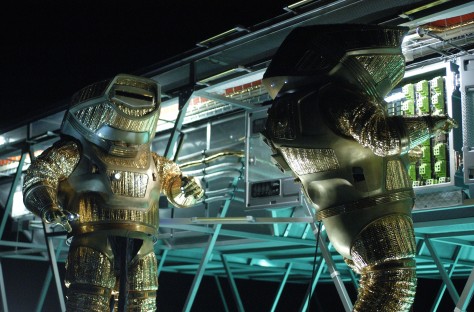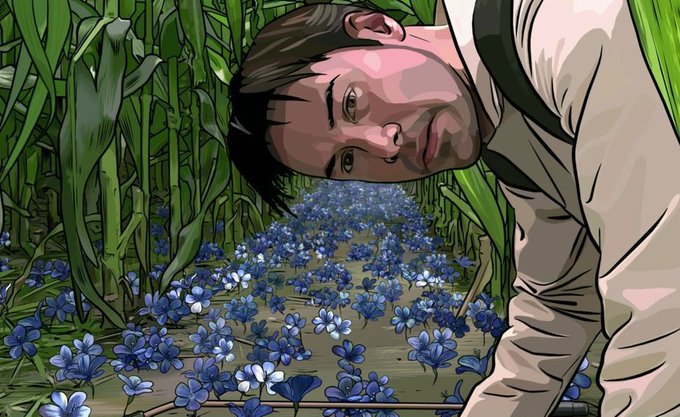By Dennis Hartley
(Originally posted on Digby’s Hullabaloo on September 12, 2009)

A stitch in time saves…oh, never mind.
I haven’t been shy about relaying my general aversion to the Pixar school of animation. It leaves me cold; it doesn’t feel “lived in” and lacks the relative warmth of hand-drawn cel animation. It’s too…digital (I liken it to the “vinyl vs. CD” argument). Perhaps I have an innate fear of technology that I have yet to come to grips with.
How ironic that one of the first such animated films to catch my fancy is a post-apocalyptic sci-fi tale about a world where the warmth of the human imprint has been eradicated by cold, detached machines. That is the premise of 9, an imaginative variation on a well-worn genre, directed by Shane Acker and produced by Tim Burton.
The story centers on a diminutive, sentient, semi-organic laboratory creation named “9”, a cross between Frankenstein and Pinocchio who looks like a voodoo doll stitched together with recycled burlap and held intact by a handy zip-up front. He awakens one day on the floor of a lab, Rip van Winkle style, to a decimated, desolate and very strange world, alongside the scientist who created him (long dead).
As he wanders about getting his bearings, it becomes apparent the machines have “taken over”. Very nasty machines, like a frightful predatory contraption resembling a T. Rex that might be constructed in a fever dream by a demented Erector Set enthusiast. When a chance encounter throws “9” in with a tribe of similar beings who have also survived the apocalypse, a possibility arises that some spark of hope and humanity might still remain-somewhere.
The “fear of technology” theme has been a sci-fi film staple, from Fritz Lang’s 1927 film Metropolis, to The Terminator and beyond. In fact, while I was watching 9, I was thinking that if Fritz Lang were alive today and were to work with computer animation, he would probably cook something up that “looked” very similar to this film.
At times I was also reminded of the otherworldly films by the Brothers Quay (Street of Crocodiles), all set to a moody soundtrack by Danny Elfman. The film is so wonderfully atmospheric and visually stunning that I was willing to overlook its (inevitable?) disintegration into loud, repetitive action sequences and an abrupt denouement.
I’d be curious to know if the director (who created the original story from which Pamela Pettler adapted her screenplay) was inspired by The Lord of the Rings. His film is, after all about a “fellowship” of nine who set about on a quest to save their world from the dark forces which are bent on destroying it (and the fact that our little Frodo-like animated hero is voiced by Elijah Wood adds fuel to that fire). Other familiar voices: Christopher Plummer, Martin Landau, Jennifer Connelly, John C. Reilly, and the ever-loopy Crispin Glover.
So what’s with all the “nines” at the box office? Numerologists must be having a field day with the convergence of District 9, Acker’s 9, and the imminent Nine (the film adaptation of the Broadway musical based on Fellini’s 8½). Hmm…maybe the machines should take over soon. It might be time to hit the “reset” button for Hollywood.







